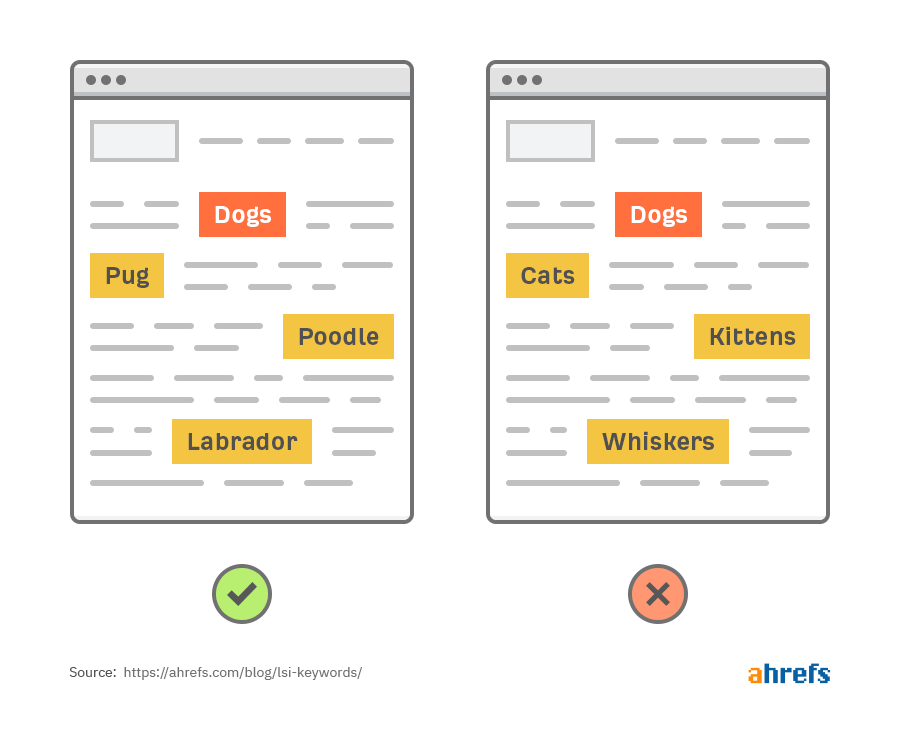In the ever-evolving world of SEO, new techniques and strategies emerge frequently. One such essential concept is the use of LSI keywords. Understanding and utilizing LSI keywords can significantly improve your content’s relevance and ranking on search engines. This blog delves into what LSI keywords are, provides LSI keywords examples, explains their full form, and guides you on how to find LSI keywords in SEO.
What are LSI Keywords?
LSI keywords, or Latent Semantic Indexing keywords, are terms that are semantically related to the main keyword you are targeting in your content. These keywords help search engines understand the context and depth of your content, ensuring that it is relevant to the user's query.
LSI Keywords Full Form
LSI stands for Latent Semantic Indexing. This is a mathematical method used by search engines to analyze relationships between a set of documents and the terms they contain. By identifying patterns in the relationships between words and concepts, search engines can deliver more accurate and relevant search results.
Why are LSI Keywords Important?
LSI keywords play a crucial role in SEO for several reasons:
- Enhanced Relevance: They help search engines understand the context of your content, making it more relevant to user queries.
- Improved Rankings: Proper use of LSI keywords can boost your search engine rankings by showing that your content covers a topic comprehensively.
- Reduced Keyword Stuffing: Instead of repeating the main keyword excessively, LSI keywords provide natural variations that enhance readability and SEO.
- Better User Experience: Content enriched with LSI keywords is often more informative and engaging, leading to a better user experience.
LSI Keywords Example
To understand LSI keywords better, let's consider an example. Suppose your primary keyword is "Apple." Depending on the context, "Apple" can refer to the fruit or the tech company. LSI keywords for "Apple" in the context of the fruit might include:
- Fruit
- Orchard
- Healthy snack
- Nutrition
On the other hand, LSI keywords for "Apple" in the context of the tech company could be:
- iPhone
- MacBook
- Steve Jobs
- Technology
These related terms help clarify the context for search engines, ensuring that users find the most relevant content for their search query.
How to Find LSI Keywords in SEO
Finding the right LSI keywords for your content can be straightforward if you know where to look. Here are some effective methods:
1. Google Autocomplete
When you start typing a query into Google, it provides autocomplete suggestions. These suggestions are often LSI keywords related to your main keyword. For instance, typing "Apple" might bring up suggestions like "Apple nutrition facts" or "Apple iPhone features."
2. Related Searches
At the bottom of the search results page, Google lists related searches. These are also good sources of LSI keywords. For example, searching for "Apple nutrition" might show related searches like "health benefits of apples" or "calories in apples."
3. Google Keyword Planner
Google Keyword Planner is a tool designed for advertisers, but it's also valuable for finding LSI keywords. Enter your main keyword, and the tool will suggest related keywords along with their search volumes.
4. LSIGraph
LSIGraph is a dedicated tool for finding LSI keywords. Simply enter your main keyword, and it generates a list of LSI keywords that you can incorporate into your content.
5. Keyword Research Tools
Other keyword research tools like Ahrefs, SEMrush, and Moz can also help you find LSI keywords. These tools provide comprehensive keyword data, including related terms that can serve as LSI keywords.
6. Analyze Competitors
Look at the content that ranks well for your target keyword. Identify the terms and phrases they use that are related to your main keyword. These can serve as LSI keywords for your content.
Best Practices for Using LSI Keywords
To make the most out of LSI keywords, follow these best practices:
1. Natural Integration
Incorporate LSI keywords naturally into your content. Avoid forcing them in, as this can make your content sound awkward and reduce readability.
2. Content Relevance
Ensure that the LSI keywords you use are genuinely relevant to your main topic. Irrelevant keywords can confuse search engines and readers alike.
3. Variety
Use a variety of LSI keywords to cover the topic comprehensively. This not only helps with SEO but also makes your content more informative.
4. Balance
While LSI keywords are important, don't overuse them. Maintain a balance to ensure your content remains natural and engaging.
5. Semantic Richness
Aim for semantic richness by including synonyms, related terms, and contextually relevant phrases. This approach helps search engines understand your content's depth and relevance.
Conclusion
LSI keywords are a vital component of modern SEO, helping search engines understand the context and relevance of your content. By using LSI keywords effectively, you can improve your search rankings, enhance user experience, and create content that resonates with your audience.
To summarize:
- LSI keywords are terms related to your main keyword.
- The LSI keywords full form is Latent Semantic Indexing.
- LSI keywords examples include related terms that clarify the context of your main keyword.
- There are several methods on how to find LSI keywords in SEO, including Google autocomplete, related searches, keyword research tools, and more.
Incorporate these strategies into your content creation process to harness the power of LSI keywords and achieve better SEO results.








No comments:
Post a Comment